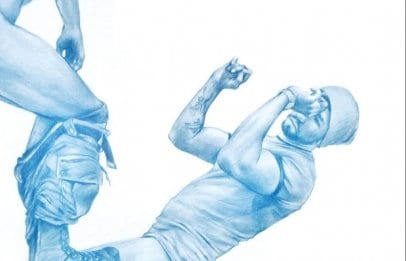There’s been much conversation about the state of the novel in our new 21st century millennium — or whatever the hell we’re calling the present now. Are people still reading longform text? Do we have the time? The attention spans? Are there enough narratives that are relevant? Are there too many? Left undiscussed, however, is the quietly thriving state of poetry. We’re seeing great new work from brilliant queer poets like Mark Doty and Andrea Gibson, but what’s particularly exciting is the new Canadian work.
In a Twitter-for-smartphone age, a newfound popularity for poetry makes sense — something that is quick to read, yet lingers in the mind and heart for hours, perhaps years. Good poets work in sharp, quick brushstrokes, and some of Canada’s finest are currently working at the peak of their powers. Last year saw new releases from John Barton and Jane Eaton Hamilton, two giants of the genre, and this spring has seen a flurry of new releases from other greats.

Two of the other poets honoured in Dawn’s poems have new releases of their own. For Your Own Good is Leah Horlick’s follow-up to her acclaimed 2012 collection Riot Lung, and it’s a set of poems that novelist Zoe Whittall has praised as “both defiant and self-aware, and close to my femme heart. We need this book.” Also needed is Bodymap, a new collection from Leah Lakshmi Piepzna-Samarasinha that trains her queer-femme-of-colour lens on disability and the “luscious and vulnerable terrains of queer desire.” The poem “dirty river girl” shares its title with the author’s upcoming memoir this fall, but arguably packs just as much into its brief but potent pages.

Add to all of this the clever new material from Marcus McCann, and the stunning debut collection from Shannon Webb-Campbell, Still No Word, and it feels like Canadian queer poetry is in the middle of a golden age. Easier to read than a short story yet richer than most novels, it’s a genre that’s been often dismissed but lately greater than ever.


 Why you can trust Xtra
Why you can trust Xtra


